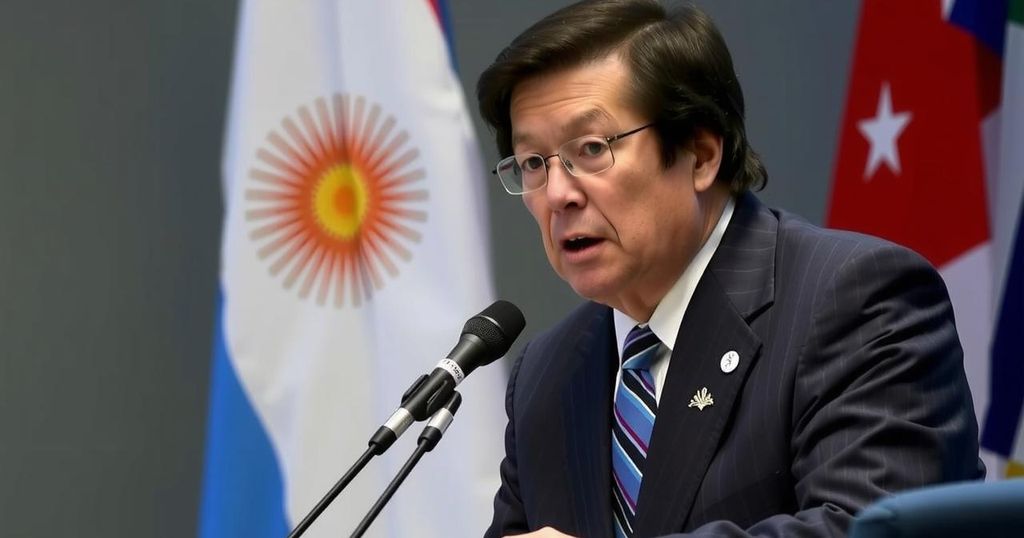Argentina’s President Dismisses Foreign Minister Following Cuba Embargo Vote
Argentina’s President Javier Milei has dismissed Foreign Minister Diana Mondino after the country’s vote at the UN to support the lifting of the U.S. embargo on Cuba, a move aligning the nation with the majority of UN members but opposing its allies, the U.S. and Israel. Gerardo Werthein has been appointed as the new Foreign Minister following this decision, which has potential implications for Argentina’s future diplomatic relations.
Argentina’s President Javier Milei has terminated the appointment of Foreign Minister Diana Mondino following the nation’s support for a United Nations resolution advocating the lifting of the long-standing U.S. embargo on Cuba. This decision represents a notable shift in Argentina’s foreign policy under Milei’s administration, as it aligns the country with 186 other UN member states, diverging from the positions of its allies, the United States and Israel, who were the only nations to vote against the resolution. In a statement released by presidential spokesman Manuel Adorni, it was announced that Gerardo Werthein, formerly Argentina’s ambassador to the United States, will replace Mondino as the new Foreign Minister. This move has raised questions regarding the diplomatic implications of opposing the embargo, especially in light of Argentina’s historical opposition to the embargo, which has been in place since 1962. The vote is significant as local media have interpreted the diplomatic repercussions of such an action, especially considering the need for Cuba’s support in discussions surrounding Argentina’s sovereignty claims over the Falkland Islands, a territory disputed with the United Kingdom. Following Mondino’s dismissal, President Milei expressed alignment with a legislative member who proclaimed pride in a government that does not support authoritarian regimes.
The article addresses the recent political shift in Argentina’s foreign policy under President Javier Milei, particularly in regards to its relationship with the United States and Cuba. The historical context of the U.S. embargo on Cuba, which dates back to 1962, is pertinent, as this embargo has been a contentious issue in international relations. The United Nations has seen various resolutions over the years seeking to lift the embargo, reflecting global opinion against its enforcement. By voting to lift the embargo, Argentina has not only aligned itself with a majority of UN member states but also positioned itself at odds with its traditional allies, the United States and Israel, which raises questions about future diplomatic relations and alignments.
In summary, President Javier Milei’s dismissal of Foreign Minister Diana Mondino signifies a bold diplomatic stance by Argentina, favoring the lifting of the U.S. embargo on Cuba and departing from its historical voting patterns against such resolutions. This decision underscores the complexities of international relations and the potential for future repercussions, particularly regarding Argentina’s claims over the Falkland Islands, as the political landscape continues to evolve.
Original Source: www.france24.com




Post Comment